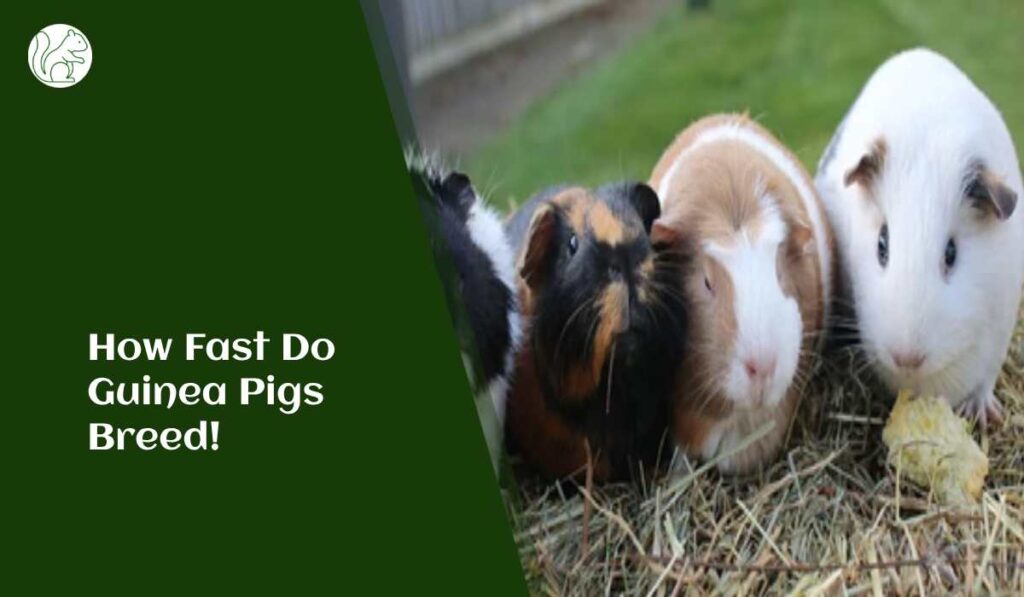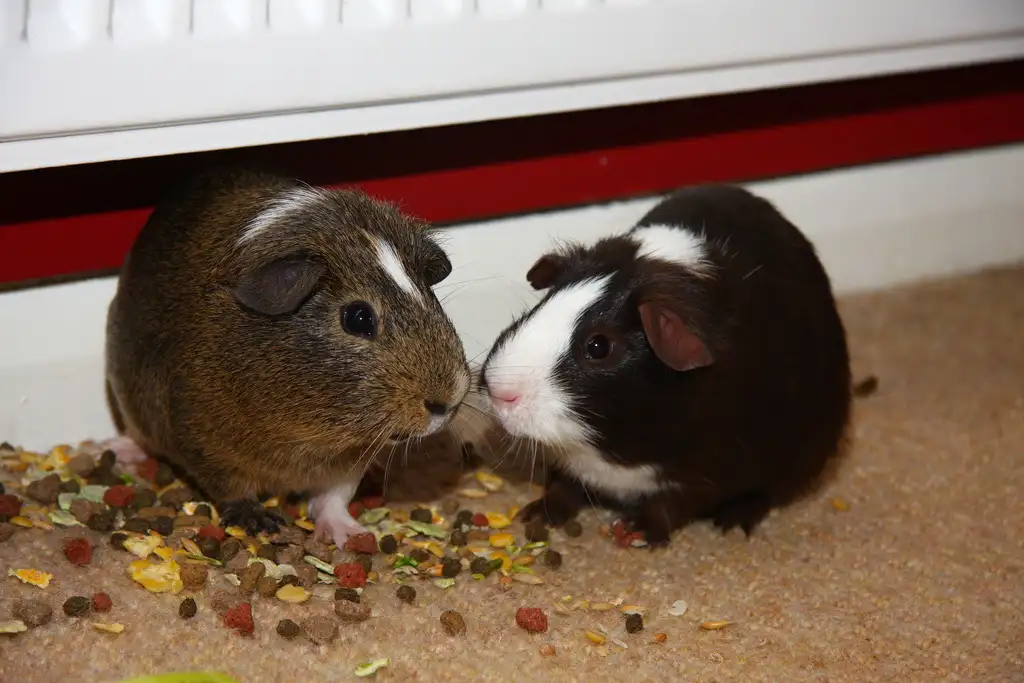If you are a guinea pig owner or considering becoming one, you might be curious about how fast do guinea pigs breed. Guinea pigs are known for their adorable and sociable nature, making them popular pets for many animal lovers. Understanding their breeding habits is essential for responsible pet ownership and preventing unexpected pregnancies. In this article, we will delve into the topic of guinea pig breeding, covering their reproductive cycle, gestation period, and factors that influence their breeding patterns.

Reproductive Cycle of Guinea Pigs
Guinea pigs are considered sexually mature at a relatively young age compared to other animals. Both male and female guinea pigs can reach sexual maturity as early as one month old, although it’s generally recommended to wait until they are around three to four months old before breeding. This allows them to fully develop and ensures better outcomes for both the mother and offspring.
Estrus Cycle of Female Guinea Pigs
Female guinea pigs experience an estrus cycle, also known as a heat cycle, which determines their fertility. The estrus cycle refers to the recurring physiological changes that occur in female guinea pigs in preparation for breeding. Unlike many other animals, guinea pigs do not have a regular estrus cycle throughout the year. Instead, they undergo continuous estrus cycles unless they become pregnant.

During the estrus cycle, female guinea pigs display certain behaviors that indicate they are ready to mate. These behaviors include restlessness, increased vocalization, and a receptive posture. It’s important to note that female guinea pigs can become pregnant at any time during their estrus cycle.
Gestation Period of Guinea Pigs
Once a female guinea pig has successfully mated, she will go through a gestation period before giving birth. The gestation period for guinea pigs lasts approximately 59 to 72 days, with an average duration of 63 days. It’s crucial to provide proper care and nutrition to the pregnant guinea pig during this time to ensure the health of the mother and her babies. Litter Size and Breeding Frequency.
Guinea pigs are known for their relatively large litter sizes compared to other rodents. A typical guinea pig litter can range from one to six pups, although larger litters have been reported. The litter size can vary depending on factors such as the age of the mother, her health condition, and genetic factors.
After giving birth, female guinea pigs can become fertile again within hours. It’s essential to separate the male and female guinea pigs after the birth of a litter to prevent rapid and continuous breeding. Breeding too frequently can lead to health issues for the mother and offspring, such as malnutrition and complications during delivery.
Factors Affecting Breeding Patterns
Several factors can influence the breeding patterns of guinea pigs. These include:
Environmental Conditions
The availability of appropriate housing conditions and a stress-free environment contribute to healthy breeding patterns in guinea pigs. A comfortable and spacious enclosure with adequate bedding, food, and water promotes their overall well-being and reproductive health.
Diet and Nutrition
Proper nutrition plays a crucial role in guinea pig breeding. A well-balanced diet rich in vitamin C, fresh vegetables, and high-quality pellets supports their reproductive health. Nutritional deficiencies can affect fertility and the health of the offspring.
Age and Health of Guinea Pigs
Breeding guinea pigs should be in good health and free from any underlying medical conditions. Older guinea pigs may have a higher risk of complications during pregnancy and delivery, so it’s important to consider their age when breeding.
Conclusion
Understanding the breeding habits of guinea pigs is essential for responsible pet ownership. Guinea pigs can breed at a young age, and female guinea pigs undergo continuous estrus cycles unless they become pregnant. The gestation period lasts approximately 59 to 72 days, with an average of 63 days. Factors such as environmental conditions, diet and nutrition, and the age and health of guinea pigs can influence their breeding patterns. By providing appropriate care, nutrition, and separating males and females after a litter, you can ensure the well-being of your guinea pigs and prevent unexpected pregnancies.
Remember, being a responsible guinea pig owner means staying informed about their breeding habits and taking necessary precautions to ensure their health and happiness.
